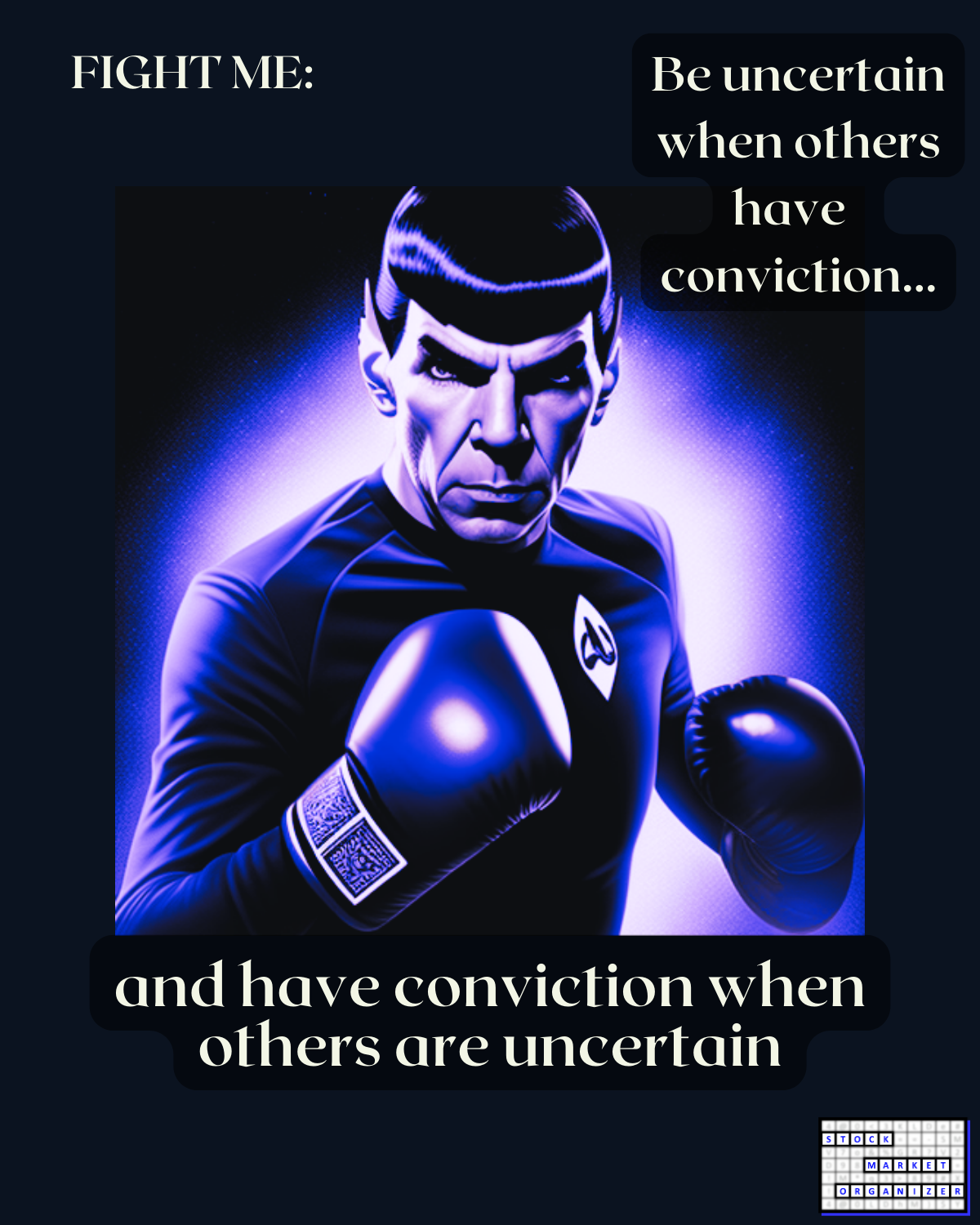Market Thought from Outer Space: Be uncertain when others have conviction and have conviction when others are uncertain

Following up the "trend following without risk management" thought in this post about LTBH (Long Term Buy & Hold), this concept is a riff on the famous Warren Buffett quote "be fearful when others are greedy and greedy when others are fearful."
Say what?
What will happen after I buy? Uncertainty vs. Conviction
Investors will state they "have conviction" about their positions, confident that their analysis will be proven "right" in the long run even if their position goes in the red in the short run.
Some may even be so confident as to add to losing positions if the share price goes lower.
They just know their stock will rise. Eventually.
I'm the opposite. While I enter positions hoping for the best...
Therefore, I take every precaution before opening a position and while the position is open to
1) eliminate emotions,
2) prevent unforced errors (it's difficult enough without those),
3) protect against catastrophic downside,
4) minimize opportunity cost impact, and
5) avoid mentally draining conditions.
Emotions and unforced errors are the bane of excellent portfolio performance.
How often does catastrophic downside happen? Market-wide, kind of rarely. Assuming you consider rare 3 drastic market falls in 20 years (2000-2002, 2008-2009, and 2020). For individual stocks, it is not uncommon (AMC stock was -78% over the 4 weeks ended 9/11/23).
Also, I'm not willing to put up with a losing stock when there are regularly other stocks providing excellent potential profit opportunities in supportive, strengthening sub-industries. Opportunity cost is real. As is the mental drain from holding a losing position.
(Ultimately it's ok to be wrong. In fact, in the market, every decision you make will be wrong. Bought a stock that went up? You should have bought more, or instead you should have bought that other stock that went up more. Bought a stock that went down? You should have not bought at all, or you should have shorted it instead.
But it's not ok to stay wrong.) #belesswrongfaster
When should I sell? Conviction vs. Uncertainty
My point in the above linked post is that LTBHers are uncertain about when they are going to sell.
I'm the opposite. While I enter positions hoping for the best...
I will get in because a stock fits a logical thesis.
I will get out when that stock no longer fits that thesis.
(And, there can be no bias, emotions, feelings, interpretations, or opinions at either point.)
It doesn't have to be more complicated than that.
What is YOUR thesis for getting in to a position?
Will you get out when that thesis no longer applies?
